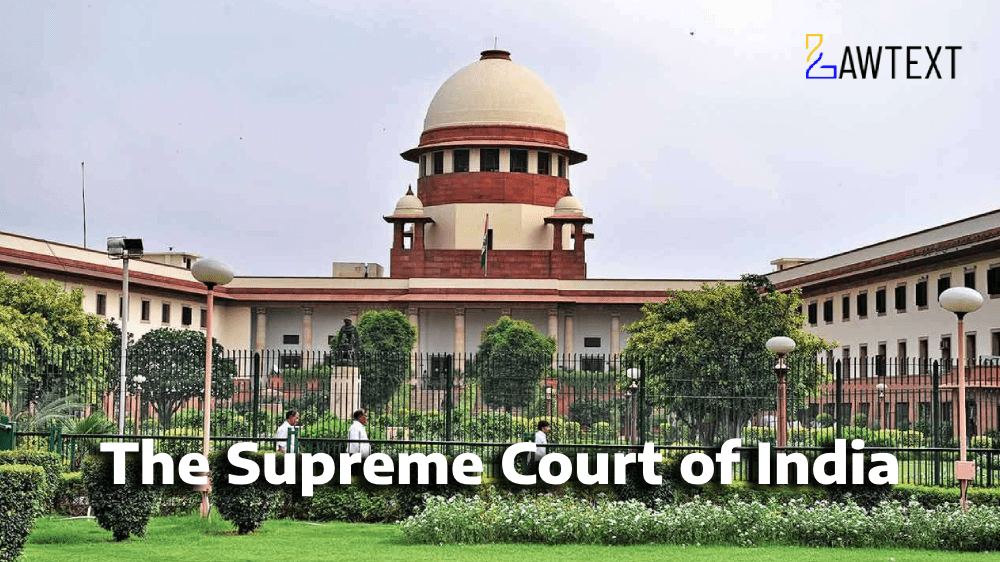

Quashing of FIR – Exercise of Inherent Powers – The Supreme Court quashed criminal proceedings against the appellant, holding that the alleged caste-based insult did not occur within public view, as required under Sections 3(1)(r) and 3(1)(s) of the Scheduled Castes and Scheduled Tribes (Prevention of Atrocities) Act, 1989 – The incident allegedly took place within an office chamber, which does not qualify as a public space – The presence of colleagues after the incident does not satisfy the legal requirement for public view – [Para 15, 17, 18]
Public View Requirement Under SC-ST Act – For an offence under Sections 3(1)(r) and 3(1)(s) of the SC-ST Act, the alleged insult must have been witnessed by members of the public at the time of its occurrence – The Supreme Court relied on Swaran Singh v. State [(2008) 8 SCC 435] and Hitesh Verma v. State of Uttarakhand [(2020) 10 SCC 710] to hold that a private office setting does not constitute a place within public view – [Para 10, 11, 12]
High Court’s Failure to Consider Legal Precedents – The High Court dismissed the appellant’s petition under Section 482 of the Code of Criminal Procedure, 1973, without examining whether the alleged offence satisfied the public view requirement – The Supreme Court held that the High Court ignored the settled law that an office chamber is a private space unless accessible to the general public at the time of the alleged offence – [Para 19]**
Exercise of Inherent Powers – Bhajan Lal Principles – The Supreme Court applied the guidelines laid down in State of Haryana v. Bhajan Lal [1992 Supp (1) SCC 335], holding that the allegations, even if taken at face value, did not prima facie constitute an offence under Sections 3(1)(r) and 3(1)(s) of the SC-ST Act – The case fell within the first category of cases warranting quashing under Bhajan Lal – [Para 16, 17, 18]
Distinction Between Public Place and Public View – The Supreme Court reiterated that a public place is not the same as a place within public view – A private place can still be within public view if members of the public were present at the time of the incident – In the present case, the insult occurred in a private office chamber, where no public members were present – [Para 12, 13]
Final Order – The Supreme Court allowed the appeal, quashed the High Court’s judgment dated 28th February 2024, and set aside the charge sheet in Special S.C. No. 7 of 2022 pending before the I-Additional District and Sessions Judge (PCR), Tiruchirappalli – [Para 20, 21]
Quashing of FIR – Inherent Power – Public View – Intentional Insult – Criminal Proceedings – SC-ST Act – Abuse of Process – Jurisdiction
Nature of the Litigation:
Who is Asking the Court and for What Remedy?
Reason for Filing the Case:
What Has Already Been Decided Until Now?
Appellant:
a) The allegations, even if taken at face value, do not satisfy the requirement of “public view” under Sections 3(1)(r) and 3(1)(s) of the SC-ST Act.
b) The High Court failed to consider the Supreme Court precedents on “public view,” which require the presence of members of the public at the time of the alleged offence.
Respondent (State):
a) A detailed investigation was conducted, and a charge sheet was filed based on witness statements.
b) The High Court correctly held that the trial should proceed to determine the veracity of the allegations.
Citation: 2025 LawText (SC) (1) 314
Case Number: CRIMINAL APPEAL NOS.____________ OF 2025 [Arising out of Special Leave Petition (Criminal) No.8778 8779 of 2024]
Date of Decision: 2025-01-31
Case Title: KARUPPUDAYAR VERSUS STATE REP. BY THE DEPUTY SUPERINTENDENT OF POLICE, LALGUDI TRICHY & ORS.
Before Judge: (B.R. GAVAI J. , AUGUSTINE GEORGE MASIH J. )
Appellant: KARUPPUDAYAR
Respondent: STATE REP. BY THE DEPUTY SUPERINTENDENT OF POLICE, LALGUDI TRICHY & ORS.